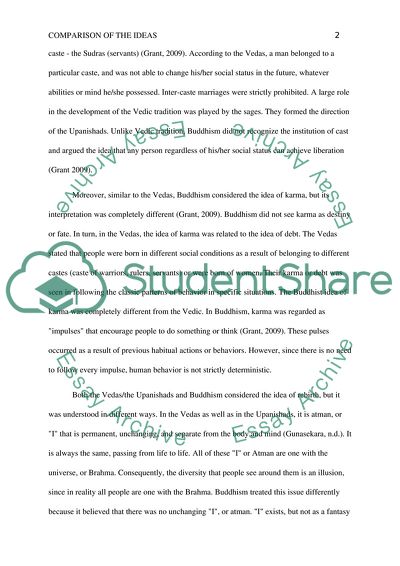Cite this document
(“Comparison of the Ideas from Buddhism and the Vedas with Upanishads Essay”, n.d.)
Comparison of the Ideas from Buddhism and the Vedas with Upanishads Essay. Retrieved from https://studentshare.org/philosophy/1661955-how-did-buddhism-differ-from-vedas-and-upanishads
Comparison of the Ideas from Buddhism and the Vedas with Upanishads Essay. Retrieved from https://studentshare.org/philosophy/1661955-how-did-buddhism-differ-from-vedas-and-upanishads
(Comparison of the Ideas from Buddhism and the Vedas With Upanishads Essay)
Comparison of the Ideas from Buddhism and the Vedas With Upanishads Essay. https://studentshare.org/philosophy/1661955-how-did-buddhism-differ-from-vedas-and-upanishads.
Comparison of the Ideas from Buddhism and the Vedas With Upanishads Essay. https://studentshare.org/philosophy/1661955-how-did-buddhism-differ-from-vedas-and-upanishads.
“Comparison of the Ideas from Buddhism and the Vedas With Upanishads Essay”, n.d. https://studentshare.org/philosophy/1661955-how-did-buddhism-differ-from-vedas-and-upanishads.


